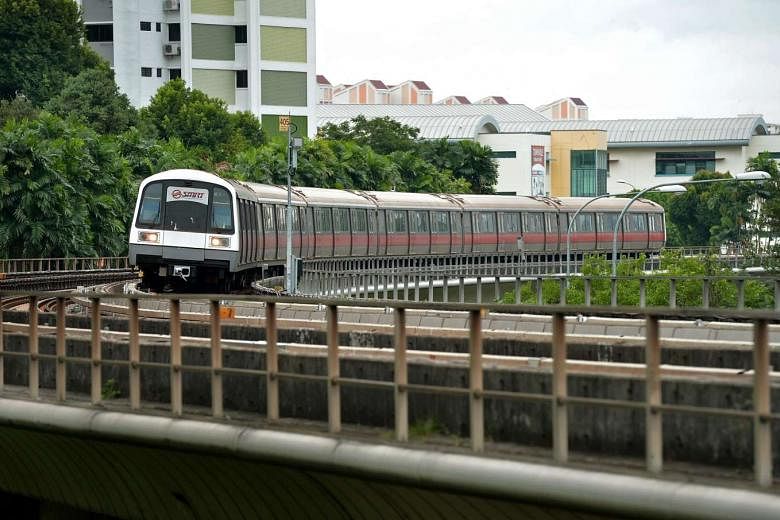International engineering firm Parsons Brinckerhoff will conduct a comprehensive health check on Singapore's rail network.
The American-based company beat rivals such as SKM (Singapore), CKM Consultants and TUV Rheinland to clinch a pair of contracts worth close to $14 million in total.
The deal is deemed to involve the most comprehensive assessment of the network since the first MRT line opened in 1987. The first contract will analyse the condition of the operating system, while the other will examine its infrastructure.
Parsons Brinckerhoff refused to comment on the deal, saying it was "highly sensitive" and that it had signed a non-disclosure agreement with the Land Transport Authority (LTA). The LTA did not respond by press time.
The awarding of the contracts follows a string of major rail breakdowns - those lasting more than 30 minutes.
In the first half of this year, there were an average of 2.5 per month - up from the 1.7 in 2011, which was previously the worst year for rail disruptions.
Detailed steps on how to minimise breakdowns were laid out by a 2012 public inquiry, which cost $10 million.
The LTA and transport operator SMRT Corp have also hired retired rail experts in an effort to get to the nub of the matter.
They include Mr Wong Wai Keong, who in March quit as chief executive of SBS Transit's Downtown Line division.
Mr Wong, 58, is a chartered engineer who spent 16 years with LTA and one of its predecessors, MRT Corp, before joining SBS Transit in 2005.
Parsons Brinckerhoff is expected to start work on its assessment of the rail system by the end of the year, and will take six to 12 months to complete it.
The company was also involved in investigations into what caused a massive breakdown which crippled both the North-South and East-West lines during the evening peak on July 7.
It was Singapore's biggest rail breakdown to date.
Together with Japanese engineering firm Meidensha, Parsons Brinckerhoff found that an accumulation of salt deposits on an electrical component on the East-West Line sparked a series of power trips that spread across the two lines.
Rail experts and former SMRT engineers told The Straits Times that the incident could have been prevented if the MRT tunnels had been washed thoroughly and regularly to prevent salt deposits from accumulating.
At the same time, many experts found it puzzling that power trips could extend to the whole network. "Power trips are quite common," one former senior SMRT executive said.
"But they are always isolated. A whole series of trips just does not happen all at once."


